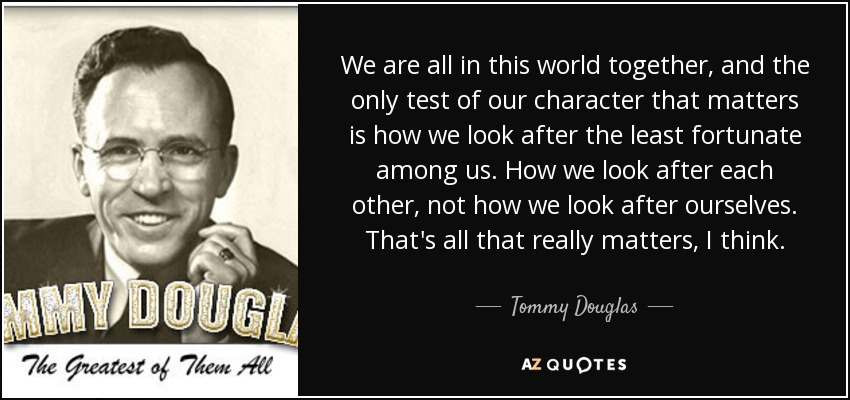One way or another, I've been a teacher all my life.
- a hypothesis, first advanced by Edward Sapir in 1929 and subsequently developed by Benjamin Whorf, that the structure of a language determines a native speaker's perception and categorization of experience.
Replying to John,Yes, Bishop Sheen made his statement in the subjunctive, which can be used to express a wish or a condition that is contrary to fact, for example, Bob Dylan's song: "May you stay forever young." The subjunctive can also be a polite way of expressing a command. I wonder why Bishop Sheen's most well-known statement is not stated as a certainty.Life is Worth Living is a definite statement and one that can be vital during difficult times. I am sorry to hear that your family had years that must have been so difficult.VOn Sun, Dec 12, 2021 at 8:26 AM TF wrote:I found Abigail Scheier's article terrific but I admit that many times I remain silent, in part because I'm tired of being shouted down and berated for an opinion that is not the shouter's. I'm sorry Bob had that awful experience at AQ-he deserved the opposite and I hope that some of the students who heard him speak are able to see through the faculty. TomOn Sat, Dec 11, 2021 at 9:48 PM JP wrote:
Good question, Virginia. "God love you" isn't hortatory (great word! it's been a while since I heard it), or, as you said before, imperative (even bishops don't give God orders , "Love that person, God!"), much less indicative ("God loves you", a different kind of expression). It's subjunctive, = "May God love you; I wish/hope God's love for you", the same kind of expression as "God bless you" or "Glory be to God" -- I'm sure there are better examples that aren't theological, but I can't think of any just now. People don't use the subjunctive much today, hence it's hard to do so without sounding unnatural. In this instance it's something between a wish and a prayer. When Sheen said it at the end of his TV show, it seemed to be addressed to the whole world, which he was prepared to embrace with his outstretched arms. But I think most people use it as an exclamation of appreciation of one person's good qualities, especially spontaneous generosity of spirit.In my family we used to watch "Life Is Worth Living" religiously (sorry!); I think this was mainly because of my aunt, who along with my grandmother lived with us between my mother's death and my father's second marriage. We also had a recording of Bishop Sheen reciting prayers and devotional poems; all I can remember of that record is the one that ends "Lovely Lady dressed in blue, / Teach me how to pray; / God was just your little boy, / And you know the way", spoken in his mellifluous baritone, and the bonus track: the voice of Pope Pius XII reciting the Lord's Prayer in Latin with a very Italian intonation.
John P.
------ Original Message ------
From: VS
To: alanarchibaldo@gmail.com
Cc: Undisclosed
Sent: Saturday, December 11, 2021 6:16 PM
Subject: Re: Stirring the Pot
Thanks, Alan. I can see that Bishop Sheen says "God love you." The title of a book of his writings is also God Love You. I find this puzzling since it is a hortatory rather than a declarative statement. Is Bishop Sheen in a position to offer this kind of advice?VirginiaOn Sat, Dec 11, 2021 at 4:39 PM Alan Archibald <alanarchibaldo@gmail.com> wrote:V, you can hear Bishop Sheen speak his farewell at the 55:36 mark of the following video: https://www.youtube.com/watch?v=T7hHNmm1OBQ On Sat, Dec 11, 2021 at 2:29 PM VS wrote:I found the Wikipedia piece about Bishop Sheen very interesting indeed. My mother used to like his TV program a lot. I did not think much about it one way or the other. I remember that, at the end of the show, he would stretch his arms out and say: "And God love you!" or maybe he said "And God loves you!" (The first statement is an imperative, and the second is a statement. Which one was it?)I never knew anything about a dispute Sheen had with Cardinal Spellman. I wonder if the cardinal might have been uncomfortable about Sheen's media success.VirginiaOn Fri, Dec 10, 2021 at 9:16 PM BS wrote:Dear Alan,
Thank you for your very interesting reply.
Must admit that I had never previously heard of Abigail Shrier until a cousin sent me the copy of her address to Princeton students. She’s the author of a book called Irreversible Damage: The Transgender Craze Seducing Our Daughters, investigating adolescent-onset gender dysphoria and calling for a slowdown of the rush to affirm it at such a young age. Here’s the Wikipedia website discussing her book: https://en.wikipedia.org/wiki/
Irreversible_Damage.
Not sure that Wegmans and Costco are great models of "capitalism the way God meant it to be," but capitalism can do a lot of good until it descends into greed, greed, greed—which, unfortunately, it seems to have done more and more over recent years.
Enjoyed the Wikipedia article on Venerable Fulton J. Sheen. Have very happy memories of his TV show, and am appalled at what Cardinal Spellman did to him and what Bishop Salvatore Matano has been trying to do to his legacy. Just glad that Sheen’s body is now in Peoria, Illinois near where I grew up. Good on Sheen for teaming up with your Dad and others.
Bob
From: Alan Archibald <alanarchibaldo@gmail.com>
Sent: December 10, 2021 7:15 PM
To: Undisclosed
Subject: Re: Stirring the Pot
Dear Bob,
Thanks for posting these links.
I enjoyed Abigail's "talk." Who is she?
As an Aquinas graduate, I want to sit with the National Review article for a while.
I will mention that Wegmans Food Markets were launched and nourished by generations of Aquinas graduates from the Wegman family: their business embodies the deep-morals and goodness that I consider fundamental components of Aquinas' history, tradition and culture.
Somewhat tongue-in-cheek, I think of Wegmans (and Costco) as "capitalism the way God meant it to be" - honest and imbued with core determination to respect customers, employees and environment. https://en.wikipedia.org/wiki/
Wegmans
In the meantime, I encourage you to read up on Fulton Sheen who is featured in the National Review article. I think it is particularly important to focus Bishop Sheen's late life transformation. The following recently-revised blog post about my Dad's quest for justice - particularly racial justice - is also a good introduction to Fulton Sheen's evolution. https://newsfrombarbaria.
blogspot.com/2021/01/my-dads- attack-on-discriminatory.html
In closing, here are a couple of Aquinas references:
Aquinas (Wikipedia): https://en.wikipedia.org/wiki/
Aquinas_Institute
Robert Wegman (Wikipedia): https://en.wikipedia.org/wiki/
Robert_Wegman
Thanks again!
Alan
On Fri, Dec 10, 2021 at 4:01 PM BS wrote:
Received two emails today that got me to thinking, the first Abigail Shrier’s talk to students at Princeton and her concern that we no longer feel free to voice our opinions in today’s society. The second, closer to home for some of us, since it involves Aquinas Institute, was in the same vein.
https://abigailshrier.
substack.com/p/what-i-told- the-students-of-princeton https://www.nationalreview.
com/2021/12/an-alumnus-story- going-home-and-finding-woke/ Hoping you can cool down enough to enjoy a beautiful and blessed Christmas.
Warm regards,
Bob (Your token conservative)



No comments:
Post a Comment